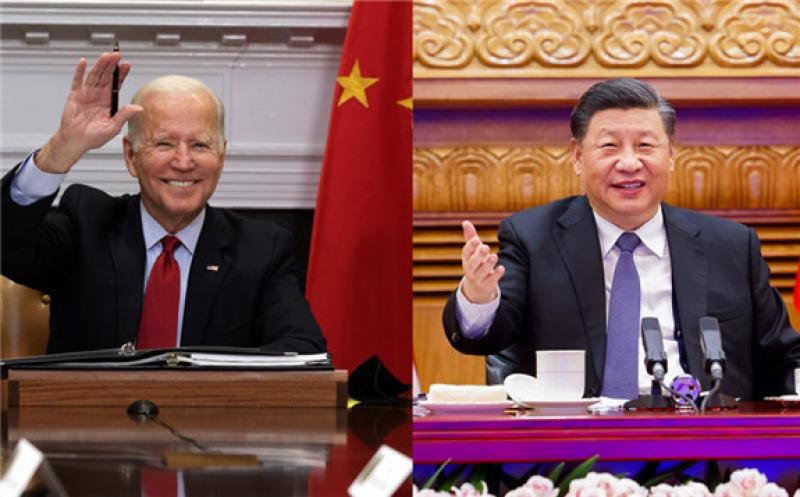The first virtual summit between US president Joe Biden and his Chinese counterpart, Xi Jinping, covered possible cooperation on stabilizing energy markets and tackling climate change.

But the two leaders are yet to reach common ground on defining the terms of relations between the world's two largest economies, and what measures can be taken to prevent an escalation of tensions into hostilities.
"Our responsibility as leaders of China and the US is to ensure that the competition between our countries does not veer into conflict, whether intended or unintended," Biden told Xi during their 3.5 hour-long video conference, which took place late evening 15 November Washington time — early morning today Beijing time.
But Beijing views "competition" as a US code word for curbing China's political and economic ambitions. Xi told Biden that their countries "need to increase communication and cooperation" and to focus on "peaceful co-existence" as an immediate goal.
Xi and Biden discussed the importance of taking measures to address global energy supplies, the White House said. In Beijing's version of the readout, Xi told Biden that their countries need to "call on the international community to jointly protect global energy security" and to cooperate on natural gas and renewable energy.
Rising oil prices and domestic US gasoline prices have prompted a debate within the Biden administration on the best ways to respond, with the White House being urged to consider a release from emergency oil stocks or even consider reimposing a ban on crude exports that was lifted in 2015. The White House so far has not done much beyond asking Opec+ members to supply more oil — a request that prompted no action from leading producers.
No LNG, crude export ban talk
The Biden administration refused to be drawn into a debate on a putative crude exports ban, but notably went on record to rule out imposing a ban on US LNG exports. Chinese firms stepped up LNG purchases from the US in recent months to meet rising demand, and added four long-term contracts that will underwrite the next wave of expansion of US liquefaction capacity.
Climate change offers another area of cooperation, with the two countries issuing a pledge last week to accelerate efforts to reduce methane emissions and phase out unabated coal-fired generation. But a senior US official previewing the summit said that more work was needed and that China "should be taking concrete action on climate."
Biden asked Xi to ensure that China continues purchases agreed to under the so-called "phase one" trade deal signed under former president Donald Trump. The deal committed China to buying $69.5bn worth of US energy commodities in 2020-21, but China's actual purchases in that category and nearly every other area covered by the agreement have fallen short. Xi, in turn, asked Biden to stop "overstretching the concept of national security to suppress Chinese businesses" — a reference to invoking US defense and national security legislation to impose tariffs on imported steel and to block certain Chinese companies from accessing US financial markets.
No easing of tensions
Taiwan's attempts to gain a larger international profile and the question of how firm the US defense guarantee is for the island that Beijing views as its own province are among the latest irritants in US-China relations. Biden earlier this year misspoke in asserting that the US would come to Taiwan's defense if it is attacked by China. But at the summit this week, he restated the decades-old US "strategic ambiguity" policy of noting that the US is merely committed to enabling Taiwan to defend itself while opposing its independence and accepting the principle that there is only one China.
Attempts to use Taiwan to contain China are "extremely dangerous, just like playing with fire," Xi said. "Whoever plays with fire will get burned."
The White House did not expect breakthroughs from the summit and there were none achieved, a senior US official said after the meeting. The official also said that Biden's goal is not to ease tensions, a notion that the official called outdated, but to manage competition with China. The US is seeking a "steady state of affairs," the official said.